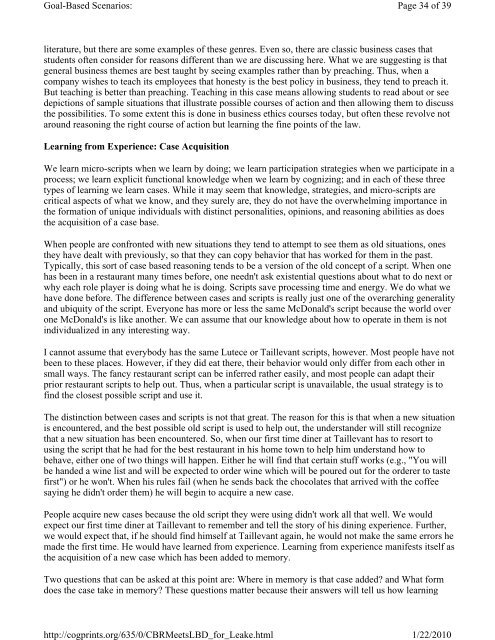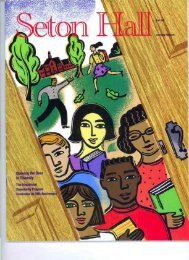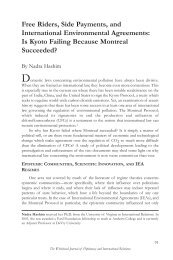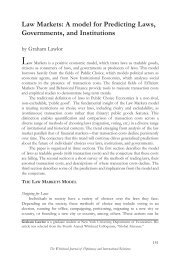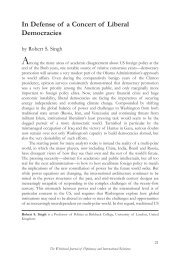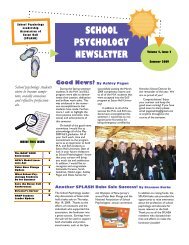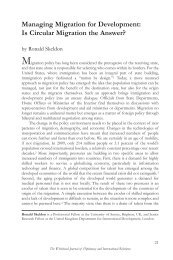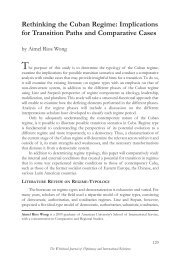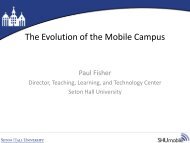Case-Based Reasoning Meets Learning by Doing
Case-Based Reasoning Meets Learning by Doing
Case-Based Reasoning Meets Learning by Doing
Create successful ePaper yourself
Turn your PDF publications into a flip-book with our unique Google optimized e-Paper software.
Goal-<strong>Based</strong> Scenarios:<br />
literature, but there are some examples of these genres. Even so, there are classic business cases that<br />
students often consider for reasons different than we are discussing here. What we are suggesting is that<br />
general business themes are best taught <strong>by</strong> seeing examples rather than <strong>by</strong> preaching. Thus, when a<br />
company wishes to teach its employees that honesty is the best policy in business, they tend to preach it.<br />
But teaching is better than preaching. Teaching in this case means allowing students to read about or see<br />
depictions of sample situations that illustrate possible courses of action and then allowing them to discuss<br />
the possibilities. To some extent this is done in business ethics courses today, but often these revolve not<br />
around reasoning the right course of action but learning the fine points of the law.<br />
<strong>Learning</strong> from Experience: <strong>Case</strong> Acquisition<br />
Page 34 of 39<br />
We learn micro-scripts when we learn <strong>by</strong> doing; we learn participation strategies when we participate in a<br />
process; we learn explicit functional knowledge when we learn <strong>by</strong> cognizing; and in each of these three<br />
types of learning we learn cases. While it may seem that knowledge, strategies, and micro-scripts are<br />
critical aspects of what we know, and they surely are, they do not have the overwhelming importance in<br />
the formation of unique individuals with distinct personalities, opinions, and reasoning abilities as does<br />
the acquisition of a case base.<br />
When people are confronted with new situations they tend to attempt to see them as old situations, ones<br />
they have dealt with previously, so that they can copy behavior that has worked for them in the past.<br />
Typically, this sort of case based reasoning tends to be a version of the old concept of a script. When one<br />
has been in a restaurant many times before, one needn't ask existential questions about what to do next or<br />
why each role player is doing what he is doing. Scripts save processing time and energy. We do what we<br />
have done before. The difference between cases and scripts is really just one of the overarching generality<br />
and ubiquity of the script. Everyone has more or less the same McDonald's script because the world over<br />
one McDonald's is like another. We can assume that our knowledge about how to operate in them is not<br />
individualized in any interesting way.<br />
I cannot assume that everybody has the same Lutece or Taillevant scripts, however. Most people have not<br />
been to these places. However, if they did eat there, their behavior would only differ from each other in<br />
small ways. The fancy restaurant script can be inferred rather easily, and most people can adapt their<br />
prior restaurant scripts to help out. Thus, when a particular script is unavailable, the usual strategy is to<br />
find the closest possible script and use it.<br />
The distinction between cases and scripts is not that great. The reason for this is that when a new situation<br />
is encountered, and the best possible old script is used to help out, the understander will still recognize<br />
that a new situation has been encountered. So, when our first time diner at Taillevant has to resort to<br />
using the script that he had for the best restaurant in his home town to help him understand how to<br />
behave, either one of two things will happen. Either he will find that certain stuff works (e.g., "You will<br />
be handed a wine list and will be expected to order wine which will be poured out for the orderer to taste<br />
first") or he won't. When his rules fail (when he sends back the chocolates that arrived with the coffee<br />
saying he didn't order them) he will begin to acquire a new case.<br />
People acquire new cases because the old script they were using didn't work all that well. We would<br />
expect our first time diner at Taillevant to remember and tell the story of his dining experience. Further,<br />
we would expect that, if he should find himself at Taillevant again, he would not make the same errors he<br />
made the first time. He would have learned from experience. <strong>Learning</strong> from experience manifests itself as<br />
the acquisition of a new case which has been added to memory.<br />
Two questions that can be asked at this point are: Where in memory is that case added? and What form<br />
does the case take in memory? These questions matter because their answers will tell us how learning<br />
http://cogprints.org/635/0/CBR<strong>Meets</strong>LBD_for_Leake.html<br />
1/22/2010


